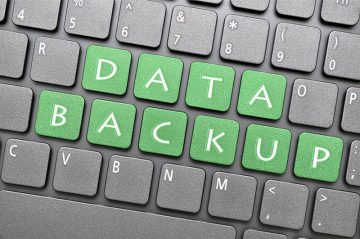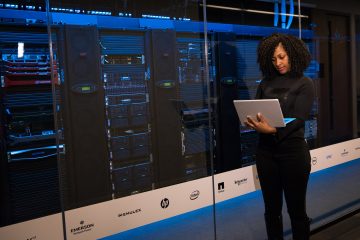Backup 101: Local Backups and Cloud Backups

Here's a question you've probably never asked yourself: 'How much do I trust my computer?' In all likelihood, the answer is 'A lot.' Think about it – family photos, personal projects, work documents, it's all on the hard drive of your PC. But does this lump of metal and plastic deserve that much trust?
The truth is, hardware fails, and software develops bugs. Your PC is most likely connected to the Internet as well, which automatically makes it vulnerable to cyberattacks. It's sad, but the fact is that in this day and age, you're constantly seconds away from losing all your precious files. That's why security experts have been telling you for years that you should start backing up your data. You've finally decided to heed the advice, but before you create copies of your files and put them on a piece of hardware, you want to know more about the procedure. In the span of a few articles, we'll try to give you the information you need.
On the face of it, backing up data is a relatively simple process. There are several factors at play, however, and before you start, you need to consider them. The first one is the location of your backup.
Local backup
With a local backup, the copy of your data resides in a storage device which you can connect and disconnect to your computer. The options are several:
- An external HDD/SSDAn external HDD (or Hard Disk Drive) is pretty much the same as the HDD inside your PC. It still has a magnetic disk that rotates at high speed, and it still has a reader that is incredibly delicate. The difference is that you can easily disconnect it from your PC and stow it safely.An SSD (or Solid-State Drive) is the more modern and robust equivalent. Unlike an HDD, it doesn't have any moving parts, and it's much quicker when it comes to reading and writing data. The downside is, SSDs are still significantly more expensive than HDDs, though it must be said that over the last few years, the price has gone down, and it will probably continue to do so.
- Thumb drivesA thumb drive is, essentially, an SSD. The obvious differences between the two are that thumb drives are cheaper, have less capacity, and are much easier to lose. All in all, if you have a lot of information to back up, it's best to look for another way of storing data.
- CDs or DVDsIt's the old-school approach. Some years ago, CDs and DVDs were one of the few ways of moving what back then was considered large volumes of data around. Even then, however, optical storage devices weren't especially reliable, and it's a known fact that their lifespan could be very short, especially if you damage them (which is an incredibly easy thing to do). All in all, if you have absolutely no other choice, backing up data on CDs and DVDs is better than not backing it up at all, but you can never be sure that your files will be accessible when you need them.
- Network Attached Storage (NAS)This is by far the most powerful local backup solution, and unlike the rest of the options, it's not physically connected to your computer. Instead, as its name suggests, it's attached to your home network, which means that regular backups can be automated. NAS devices come in a variety of shapes and sizes, and some offer additional features like the ability to access the data over the Internet.All this convenience comes at a cost, however. NAS devices are much more expensive than external hard drives, and the cost difference is big enough to deter most people away. In addition to this, a few attacks on home and corporate networks leveraging NAS devices have raised a few security concerns.
On balance, an external HDD should work for most users, and if the volume of data you need to back up is not that huge, an SSD is a sound investment. It's fair to say, however, that there are risks with all the on-premises solutions. We're talking about consumer devices which will likely be stored in a cupboard, or on a shelf. No matter which one you choose, it'll be vulnerable to fires, floods, thieves, and children who love throwing things from a great height. If the backups are stored in the cloud, however, these risks are eliminated.
Cloud Backups
The concept of cloud-based backups is a relatively new one, but people are getting used to the idea.
From a convenience standpoint, the advantages are indisputable. You won't need to worry about buying the right hardware device, using the right tools for backing up the data, and then storing it where your children won't be able to find it. Getting more space when you need it is much easier with the cloud solutions, and other people will worry about the health of the storage devices. The process of backing up files is completely automated, and the backups themselves can be accessible from anywhere in the world.
Of course, we're talking about information being stored on the Internet, and wise people once said that if information is stored on the Internet, sooner or later, it will be stolen. Cloud backup providers are aware of this, however, and the good ones encrypt your data before they send it over the wire. This ensures that even if the crooks get their hands on it, they won't be able to see a thing. Trustworthy cloud backup providers know that they're responsible for handling something extremely valuable, and they take a number of other security precautions to ensure that nothing bad will ever happen to your files.
Of course, this is all a service, and it does cost money. When you consider how much valuable data you have on your computer, however, you'll see that it's well worth it, and if anything, the subscription model adopted by most providers means that the expenses are spread out over time which could be considered an advantage.
Ultimately, you will be the one deciding whether your backups should stay on premises, or whether they should be put in the cloud. You must have them, however, and you must keep them current. More on how to do this in our next article.








